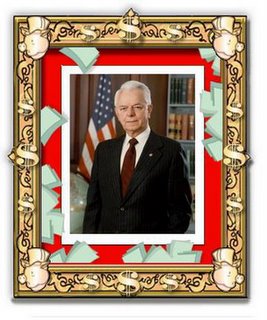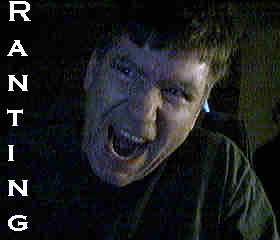I got into a discussion last night at the dinner table with our foreign exchange student about the uprising worldwide of Muslims in somewhat-belated anger over the publication of the 12 “blasphemous” cartoons in a Danish newspaper.
Our German family member, 17, is a pretty thoughtful boy. He was critical of the rage shown by the Muslims in burning flags and destroying embassies. He said the West, however, should be cognizant of Islamic sensitivities and should not have published the cartoons. He said that as Islam is a widely-pursued religion/culture on the world stage, its wishes must be respected when it comes to matters of public discourse.
This is where we differ sharply.
I disagree that topics of discussion in a free society must be unevenly censored in the interest of cultural sensitivity. I also disagree that every culture should unquestioningly have equal weight in determining mankind’s global evolution. I think rational human beings must stand for the continuing elevation of human understanding and achievement, and I think Islam, with its rigidly structured and proscribed society, is anathema to progress and change.
I’m an American, a proud resident of this country in which my ancestors arrived two generations ago – one small ingredient in this melting pot. My grandfathers came to this country from Denmark and England, sank their roots and contributed what they could to this country’s greatness. They eventually went into politics, farming, mining and, through successive generations, engineering, music art and literature. As a result of my origins, I value cultures for what they bring to the table of human understanding, knowledge and progress.
I think cultures which add to human understanding are to be valued, while those which seek to subjugate their adherents are to be shunned. I think multi-culturalism is an enemy of human progress because it divides rather than blends the best of human attributes.
Science fiction author Gordon Dickson, in his Dorsai books and particularly The Final Encyclopedia, postulates that humanity can be broken into three cultures which are separately pursuing human evolution. The Dorsai are the pragmatic warriors, the Exotics are the mystical philosophers and the Friendlies embody man’s fierce devotion to his faith. All three are necessary for true evolution.
Public debate and discussion are equally necessary for progression. Our philosophies are built and modified through exchange and comparison of ideas in public forums. Ideas which can not stand up to public debate are often relegated to the dustbin of history.
In the case of Islam, however, the rigidly faith-based culture seeks to protect and preserve itself from public comment by trying to silence the discourse. And by labeling as apostate anyone within the religion who is critical of its tenets, Islam seeks to put itself beyond discussion. It seeks to make legitimate public comment, especially including comment on the violence perpetrated by many Muslims in the name of Allah and Mohammed, off limits to discussion. Cultural leaders stoke the fires of rage within their followers, hoping the ensuing demonstrations will intimidate the world into silence.
The West must acknowledge these protests, but not censor itself in response. The free and open discussion of ideas is essential to progress. International decorum, if it means limiting topics available to debate, is unacceptable.
It would be easy to say “it’s their culture, they apparently like it, so let’s ignore them and let them be.” And that might actually work if Islam confined itself to its endemic countries and had no further impact on world affairs. We could probably ignore an isolated culture where, in many cases, women are subjugated, some mythical being is the source of law and discussion is silenced by leaders who interpret the directives from god in whichever manner they see fit.
It’s more difficult to ignore the culture, and its plusses and minuses, when it is expanding and coming into conflict with other ways of thinking. I hope the West will continue to discuss the merits of Islamic culture, and will sift out those elements it deems worthwhile for inclusion in our evolution.
Islam can either withdraw to its dark, stagnant corner and watch the world pass by, can embrace the chance to openly discuss its merits and contribute to the growth of man or will be consigned to eternity. The debate has begun and contrived protests are not going to silence it.

















